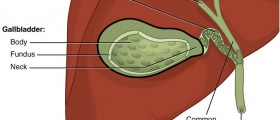
Often known as indigestion, dyspepsia is a condition that is often associated with overeating or improper diet. However, dyspepsia can also occur as a result of other, underlying problems. Many people are affected by this condition, the causes of which are not entirely known. Those who undergo surgery for the operation might still suffer from the condition, even after the surgery. Doctors are beginning to associate dyspepsia with disorders of the nervous system or the muscular activity of the stomach and small intestine.
Symptoms
Symptoms of dyspepsia include nausea, regurgitation, heartburn, vomiting, stomach pain, prolonged bloating after meals. Some might experience a general feeling of sickness or nervousness in the stomach. These symptoms are also common to diseases such as peptic ulcer disease, gallbladder disease and gastritis. Symptoms can last for more than four days, and in some people can be very severe. The disease is most common in women aged sixteen to sixty.
Causes and Risks
There are numerous causes of dyspepsia, and the problem can occur with mild or severe symptomatic manifestation. Conditions such as gastroenteritis, gallbladder diseases, pancreatic diseases and inflammatory bowel disease can all lead to the onset of dyspepsia. In addition to these, stomach ulcers, stomach cancer, pregnancy and diabetes mellitus can all potentially lead to dyspepsia.
It is not absolutely necessary for digestive disorders to develop in order for dyspepsia to occur. Dyspepsia can occur due to irregular muscle movements in the stomach and small intestine. During digestion, the walls of the digestive tract contract and relax. This allows the lower part of the stomach to break down food. Dyspepsia occurs when the upper part of the stomach attempts to break down the food.
Treatment
If dyspepsia is being caused by some underlying problem, then the doctor will look to address this condition. For dyspepsia that is not caused by another condition, it might be necessary to consider a change of diet. Cut out greasy foods or even meat. Those who are lactose intolerant should eliminate dairy products from their diet. In severe cases, a doctor might advise a liquid-only or soft food-only diet. This diet should be observed until symptoms no longer exist. Some medical therapies can be used to control symptoms that are persistent. Patients might also be advised to avoid irritants like an Aspirin, alcohol and nonsteroidal, anti-inflammatory drugs.
Some patients might require the use of antacids, or H2 blockers such as Tagamet.

















Your thoughts on this
Loading...